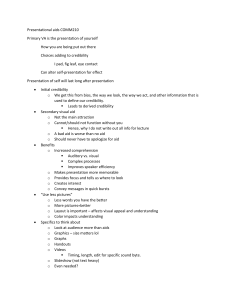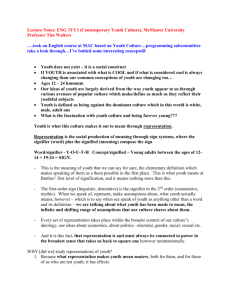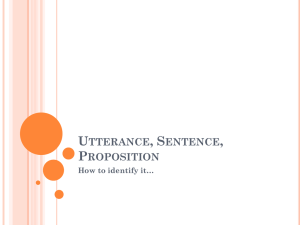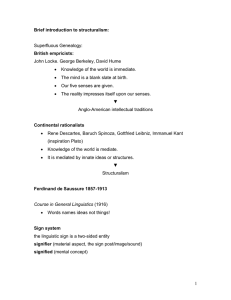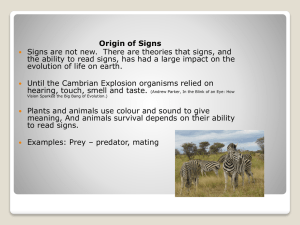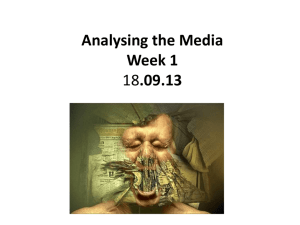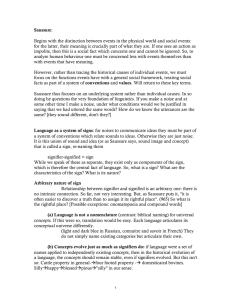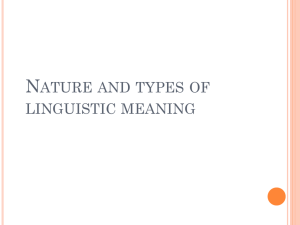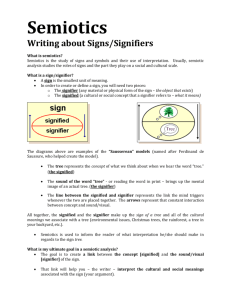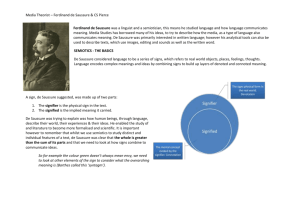literary theory: structuralism - Mr. Robertson's Bunker
advertisement
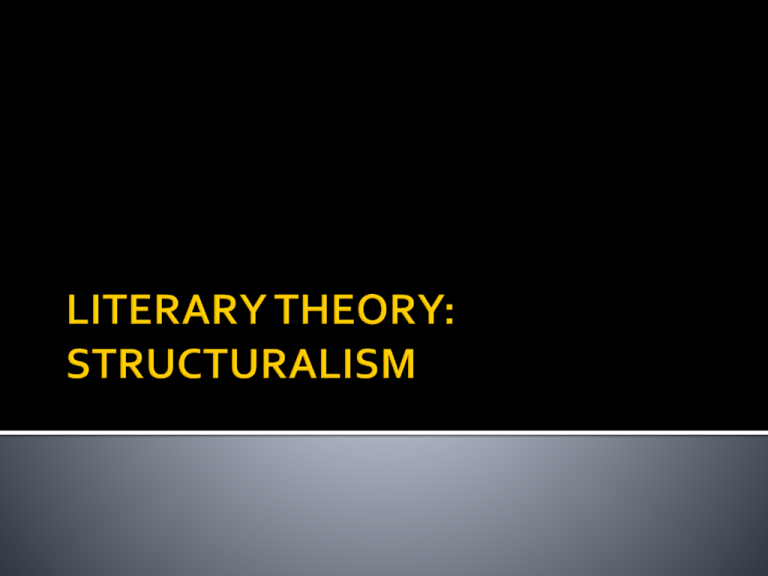
In the 1960s, this approach to studying literature called Structuralism became popular. The Swiss linguist, Ferdinand de Saussure (the ‘father’ of modern linguistics), influenced this theory through his examination of language as a system of __________________, called semiology. According to Saussure, a sign (a linguistic experience) consists of two parts: a signifier and a signified. __________________ - the word or group of words __________________ - the concept or meaning associated with that signifier For example, people know when they see a stop sign (signifier) it means they must stop (signified). Structuralists believe that if readers do not understand the __________________, they may misinterpret or misread a text. Furthermore, Structuralists do not focus on the overall meaning of a text, but rather on the __________________ __________________of a text. This theory does focus on the author’s intent, and it does focus on an __________________ interpretation without clouding the text with a subjective or emotional interpretation. It is difficult to know who controls the __________________ of a text and what happens if readers don’t agree with each other when interpreting the signs in a text. Who clarifies these misinterpretations? Also, there are negatives when a reader only looks at a linguistic structure and is not permitted to have an __________________attachment to a text. Finally this theory is __________open to different __________________ provided by the readers. Use these questions to respond to an assigned text from the student anthology: 1. What are five key signifiers in this text that if you did not know what they signified, you would not understand the text? 2. For the fist of five signifiers from question 1, write down what each signified. 3. If you did not know what one of the signifiers signified, where would you go to learn this information? 4. What historical information or information about the author did you need to know in order to understand the meaning of the signifiers? At midnight the café was crowded. By some chance the little table at which I sat had escaped the eye of incomers, and two vacant chairs at it extended their arms with venal hospitality to the influx of patrons. And then a cosmopolite sat in one of them, and I was glad, for I held a theory that since Adam no true citizen of the world has existed. We hear of them, and we see foreign labels on much luggage, hut we find travelers instead of cosmopolites. (0. Henry. A cosmopolite in a café) Eight o’clock in the morning. Miss Ada Moss lay in a black iron bedstead, staring up at the ceiling. Her room, a Bloomsbury top-floor back, smelled of soot and face powder and the paper of fried potatoes she brought in for supper the night before. ‘Oh, dear’, thought Miss Moon, ‘I am cold. I wonder why it is that I always wake up cold in the mornings now...’ (Katherine Mansfield, Pictures1) These days, when people emigrate, it is not so much in search of sunshine, or food, or even servants. It is fairly safe to say that the family bound for Australia, or wherever it may be, has in its mind a vision of a nice house, or a flat, with maybe a bit of garden. I don’t know how things were a hundred or fifty years ago. It seems from books, that the colonizers and adventurers went sailing off to a new fine life, a new country... (Doris Lessing, ‘A Home for the Highland Cattle’) ‘And where’s Mr. Campbell?’ Charlie asked. ‘Gone to Switzerland. Mr. Campbell’s a pretty sick man, Mr. Wale.’ ‘I’m sorry to hear that. And George Hardt?’ Charlie inquired. ‘Back in America, gone to work. And where is the Snow Bird?’ ‘He was in here last week. Anyway, his friend, Mr. Schaeffer is in Paris.’ Two familiar names from the long list of a year and a half ago. Charlie scribbled an address in his notebook and tore out the page. ‘If you see Mr. Schaeffer, give him this. It’s my brotherin-law’s address. I haven’t settled on a hotel yet.’ He was not really disappointed to find Paris was so empty. (Scott Fitzgerald, ‘Babylon revisited’; A message came from the rescue party, who straightened up and leaned on their spades in the rubble. The policeman said to the crowd: ‘Everyone keep quiet for five minutes. No talking, please. They’re trying to hear where he is.’ (V.5. Pritchert, ‘The voice’)
